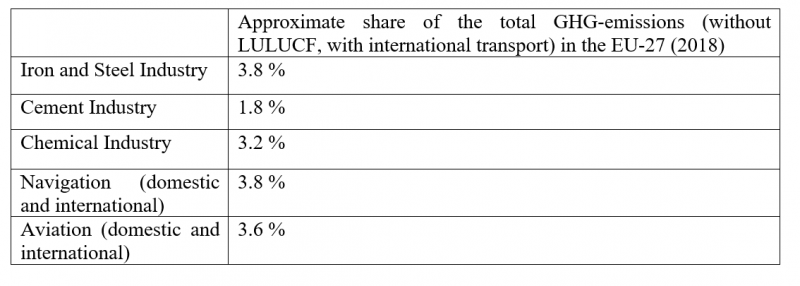by Miriam Dalli and Mohammed Chahim*
Considering the limited amount of green hydrogen available, the European Commission should prioritise its use in sectors that cannot decarbonise through other means like electrification, write Miriam Dalli and Mohammed Chahim.
The early and rapid deployment of hydrogen will be an essential part of decarbonising the EU economy by 2050. Especially during its initial launch, we will not have enough hydrogen to supply each sector, which is why we argue that a roadmap is needed based on a sectorial approach.
Whereas carbon intensive sectors should ideally use hydrogen for their energy demand, electrification will remain important in decarbonising other sectors. The roadmap should clarify which industries receive prioritisation when it comes to the use of hydrogen.
The end-goal is to base our entire hydrogen economy on green hydrogen – which uses no fossil fuels during its production and does not emit any CO2. However, to get to that level of green hydrogen production we need a lot more investment and innovation.
In the meantime, blue hydrogen can be a viable transition fuel until we produce enough green hydrogen. However, the production of blue hydrogen (for which natural gas is used and the CO2 emissions are captured) requires investments in Carbon Capture Storage (CCS) technologies. Furthermore, the capacity of producing blue hydrogen should never overtake the capacity of producing green hydrogen or we risk creating a lock-in situation in polluting technologies.
Hydrogen is especially required for those sectors where electricity and batteries are not sufficient to decarbonise. These include heavy road traffic, aviation and shipping as well as the production of high-temperature heat in industrial processes, such as the steel, cement and the chemical industry.
Most of these industries are responsible for a significant share of the total CO2-emissions within the EU, see the table below.

If green hydrogen would be readily available for these sectors, a large part of their emissions could be abated. Which would have a positive impact on our European climate targets.
One of the strengths of hydrogen is that it has various applications and can benefit many industries in different ways. For the cement industry for example, hydrogen can be used to provide the combustion energy needed to drive the chemical reactions in the kiln from both traditional and novel carbon neutral or near-zero-emission sources. For the chemical industry, hydrogen is widely used as a feedstock for production of numerous chemicals that are widely used. For the transportation sector, Hydrogen Fuel Cells can be more economically viable for heavy-duty vehicles than Battery Electric Vehicles, also because of the time it takes for refuelling. Within the transport sector, both the aviation and maritime sector, which are together responsible for approximately 6% of the GHG emissions in the EU, can go green by switching to hydrogen.
There is a push for the use of hydrogen as we move towards a climate neutral economy, however the hydrogen supply is set to be limited, especially during the early days of launching our hydrogen economy.
Therefore, it is important that we prioritise sectors that cannot reach decarbonisation through other means, such as electrification. This means we have to make decisions now regarding who gets to use the available supply of hydrogen when. If we take the transport sector as an example, we can say that aviation should be prioritised over passenger and light commercial vehicles, as these can be decarbonised through other methods including electrification and solar vehicles.
Changes will not happen on their own, nor will they happen fast enough if we keep postponing important decision-making. We need to speed up research, investment, and commit to investing and developing hydrogen integration and infrastructure.
The industry is looking at the Commission for guidance; they need security before they can continue their research and development. We therefore call upon the Commission to start communicating their sectoral prioritisation, particularly regarding the sectors mentioned above.
*Maltese Member of the European Parliament for the Labour Party, vice-president of the Socialists & Democrats (S&D) group and Dutch Member of Parliament for the Labour Party (S&D)
**first published in: www.euractiv.com




 By: N. Peter Kramer
By: N. Peter Kramer

